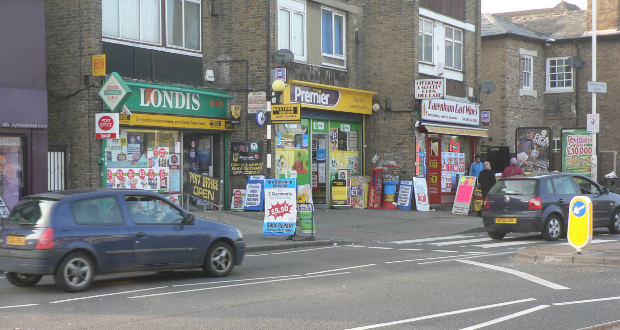The consumer study claims that 85% of consumers are still worried about food prices, while the same amount worry about the well-publicised increase in energy prices.
These issues have factored towards a fall in supermarket trust, with many wanting to see supermarkets do more to help those on a budget.
YouGov data also shows that the gap in overall supermarket favourability has reduced dramatically since the sector’s publicly commended efforts during Covid-19.
With the above in mind, the data experts at Leeds-based SALT.agency, a specialist technical SEO, data & content agency, analysed third-party data to decipher shoppers’ changing attitudes towards supermarkets, focusing on search volume trends and organic traffic changes for 34 supermarket and convenience store brands in the UK.
Since Covid-19, larger supermarkets have fallen in popularity, while local stores, such as Londis and Nisa, have enjoyed increased consumer favour.
The change in popularity isn’t just a brand contest, according to SALT.agency it’s impacting organic searches.
Most supermarkets with decreased popularity have also seen yearly brand search volume decline.
Using third-party data, when viewing supermarkets with the largest search volume in 2023, nine out of the top 15 saw a reduction in search demand from last year.

Thierry Ngutegure, head of data Insight at SALT.agency, commented: “It’s interesting to see how people are seemingly moving towards shopping locally, rather than in big supermarkets – and it seems it’s not because they may want to shop local but because due to the financial climate, they are being forced to – so instead of the massive shop every month or 2 weeks, they opt for smaller shops at smaller shops.
“That, combined with the trust aspect of large supermarkets increasing costs to capitalise on inflation, has pushed consumers to change their behaviour entirely.
“While popularity and trust may be at a 10-year low, the supermarket industry rebuilt consumer confidence for a time and has the potential to do it again. With search volume dropping while organic traffic grows, this suggests people no longer value brand loyalty and will visit sites they feel offer better value.
“It is also worth considering the broader impact of rising inflation on all retail and consumer industries. Out of the top 10 supermarkets with the highest organic traffic, the biggest increases were seen in those known for being cheap, especially in the wholesale market, with brands such as Costco featuring.
“The cost of living crisis is undoubtedly one reason why local convenience stores enjoy increased traffic, as people look to visit stores closer to home rather than venturing further afield to do a ‘big shop’.”
 Talking Retail Grocery and product news for independent retailers
Talking Retail Grocery and product news for independent retailers






